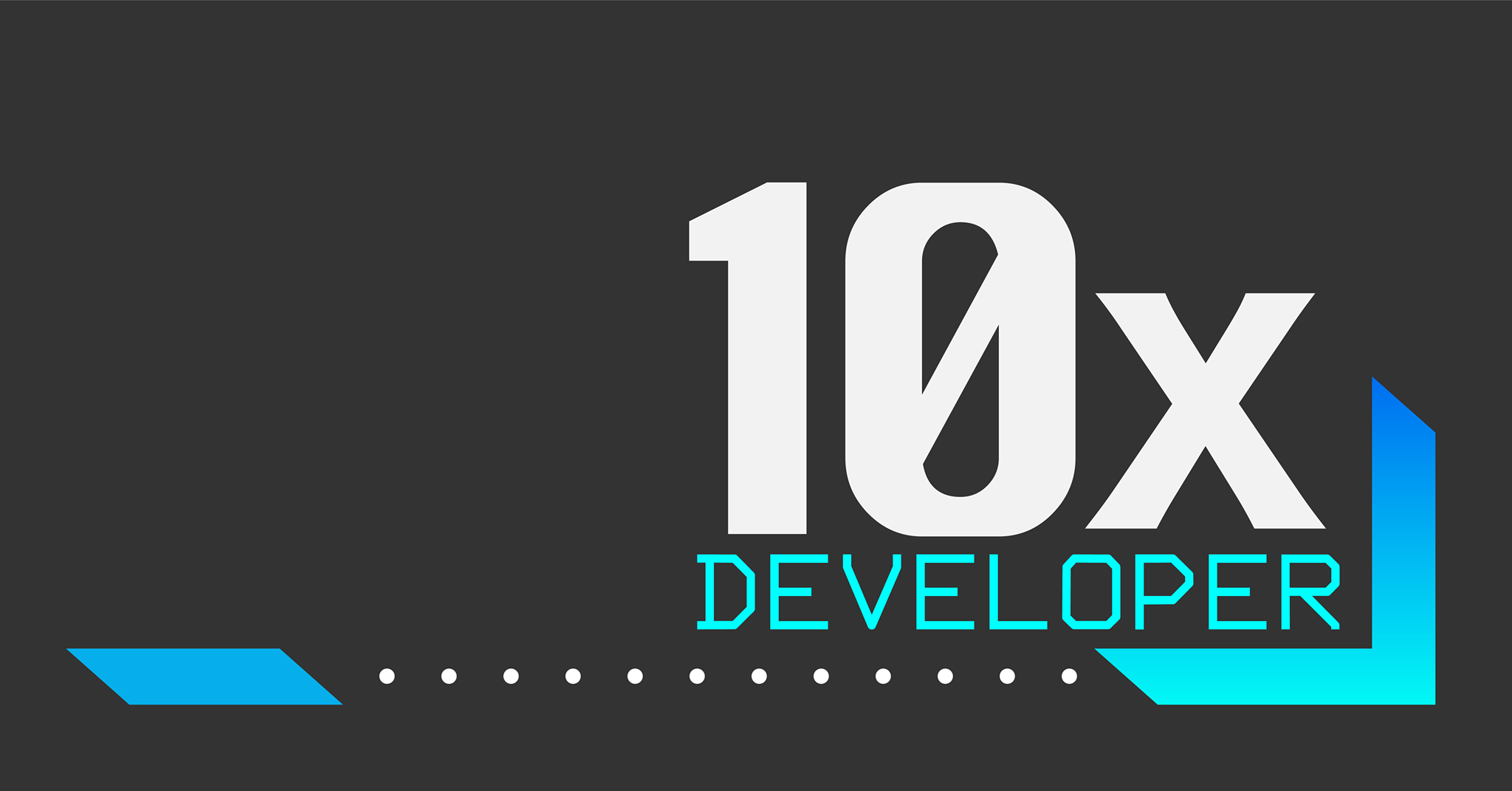Over the years, the legend of the “10X engineer” has become almost mythic in tech circles. If you haven’t come across the term yet, it refers to a mythical being—a programmer who is supposedly ten times more productive than their peers. You know the stereotype: they write thousands of lines of code daily, solve every technical problem, and pull off heroic all-nighters to finish projects that would take a team weeks. But let me stop you right there—this idea is both outdated and misaligned with the realities of modern software engineering.
In fact, the very notion of a 10X engineer may be doing more harm than good. Let’s dig into why this idea is flawed and, more importantly, why real-world engineering success is driven by something far different than the ability to churn out code at breakneck speed.
The Problem with the 10X Engineer Myth
First off, productivity is not about cranking out lines of code. The 10X engineer narrative often puts way too much weight on the quantity of output and little to no focus on its quality. In reality, the best engineers are not the ones who can write code the fastest, but the ones who solve problems most effectively.
Let’s face it: most bugs and bad architecture stem from hastily written code. The idea that someone can consistently outpace their team by a factor of ten implies that engineering is all about speed, and that couldn’t be further from the truth. In fact, slow, thoughtful development tends to produce much better long-term results. Anyone who’s had to maintain a messy codebase knows that fixing poorly written, hurried code often takes more time than writing it properly the first time.
But it’s not just about writing good code—it’s about understanding the entire ecosystem in which that code operates.
Engineering is a Team Sport
The reality is that engineering is a team sport. The days of the lone genius sitting in a dark room, hammering away at their keyboard, are over—if they ever even existed. Modern engineering is about collaboration.
You need to communicate with product managers to understand user requirements, with designers to create interfaces that make sense, and with other engineers to ensure that the code integrates seamlessly into the larger system. The 10X engineer concept forgets that the most productive people are not the ones who work in isolation but those who can make everyone around them better.
Tim Banks, in his recent podcast appearance on “Ship It,” discussed how the notion of being productive in tech isn’t about “typing on a keyboard faster.” Instead, he emphasizes the importance of understanding the big picture, such as the architecture of the software, the infrastructure it runs on, and the business objectives it’s meant to serve. If you don’t know the “why” behind what you’re building, all the code in the world won’t get you to the right solution.
This perspective is echoed across the industry—engineering success isn’t about coding faster; it’s about working smarter and making strategic, informed decisions that help your team, company, and users. When you consider that coding is just one part of the process, you start to understand why communication, problem-solving, and architectural skills are far more valuable.
The Rise of AI: Will It Kill the 10X Engineer?
With the rapid growth of generative AI, many are beginning to wonder: if AI can write code, do we even need 10X engineers? The answer is a resounding yes—but with a caveat. The grunt work of coding is increasingly being automated. Tools like GitHub Copilot and OpenAI’s Codex can now write entire functions or suggest lines of code for you. But here’s the thing—knowing how to write code was never the most important skill in the first place.
What will set engineers apart in this AI-driven world is their ability to think critically and apply context. AI may be able to churn out solutions, but it still requires human direction. As Banks puts it, “The grunt work of writing a Terraform script based on a problem description is largely going to be automated away.” What will remain valuable is knowing what problem to solve and how to direct AI tools effectively.
Simply put, the future of engineering isn’t about being a coding machine—it’s about being a strategic problem solver. And that’s a skill no AI can replace—at least not yet.
Soft Skills Are Hard Skills
Another glaring flaw in the 10X engineer myth is its tendency to overlook soft skills—skills like communication, empathy, and teamwork. The truth is, these are not soft skills. In today’s engineering landscape, they are some of the most valuable tools in your toolkit.
A brilliant engineer who can’t explain their solution, or worse, refuses to collaborate with others, is far less valuable than a good engineer who excels in team environments. Good engineers make others on their team better. They lift up junior engineers, communicate well with stakeholders, and work with product teams to ensure the right problems are being solved.
At the end of the day, a true 10X engineer isn’t someone who’s isolated and heads-down coding all day—it’s someone who elevates the entire team.
Comparative Analysis of Tools
Speaking of tools, in a modern engineering environment, there are plenty of tools that augment and assist engineers in making better decisions. Platforms like LangChain, TensorFlow.js, and Hugging Face Transformers are revolutionizing how we think about machine learning and AI in JavaScript. Similarly, Composio allows engineers to automate workflows across numerous business applications, helping them focus on higher-level tasks.
The problem with the 10X engineer myth is that it doesn’t account for the automation and collaboration that’s becoming central to modern engineering. Tools can do much of the grunt work, but people bring the creativity and strategic thinking that keeps businesses competitive.
If you’re relying on individual productivity as your benchmark for success, you’re missing out on the massive gains that come from integrating the right tools and fostering the right collaboration. Automation, machine learning, and AI are helping engineers accomplish more, but they’ll never replace the need for good decision-making and effective communication.
So, What Should You Focus On?
The future of engineering isn’t about being the fastest coder in the room—it’s about being the most effective collaborator. Here are a few tips to leave the 10X engineer myth behind and focus on what really matters:
- Prioritize Communication: Understand the problems you’re solving by communicating effectively with stakeholders and team members.
- Leverage Tools Wisely: Tools like LangChain and TensorFlow.js can accelerate development but require human context and insight.
- Focus on Problem-Solving, Not Code-Writing: Writing code is only part of the solution. You need to understand why the code exists and how it fits into the broader system.
- Value Soft Skills as Hard Skills: Empathy, communication, and teamwork are not optional. They’re critical to modern engineering success.
- Adapt to Change: With AI and automation on the rise, focus on skills that can’t be automated—like strategic thinking, problem-solving, and collaboration.
Conclusion: The 10X Engineer is a Myth—But the 10X Team is Real
Ultimately, what you really want is not a 10X engineer but a 10X team. You want a team that communicates well, adapts quickly, and solves the right problems. The future of engineering is collaborative, and it’s about bringing together a variety of skills—technical and otherwise—that make everyone more productive.
So forget about being the “10X engineer.” Focus on being a valuable team player, and you’ll be much more than just a mythical figure—you’ll be a real asset in any environment.


Leave a Reply